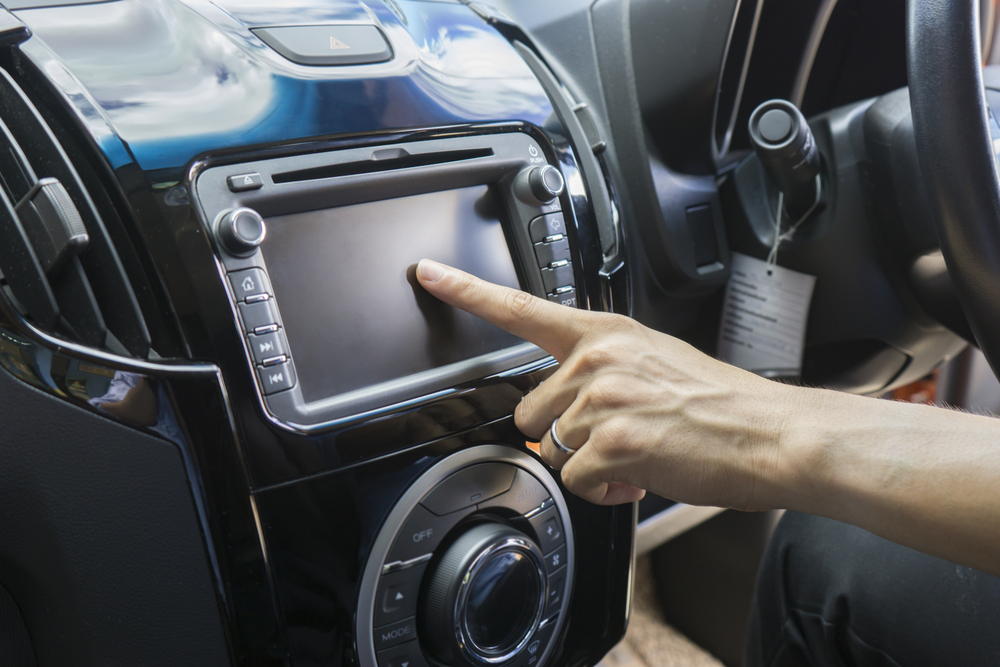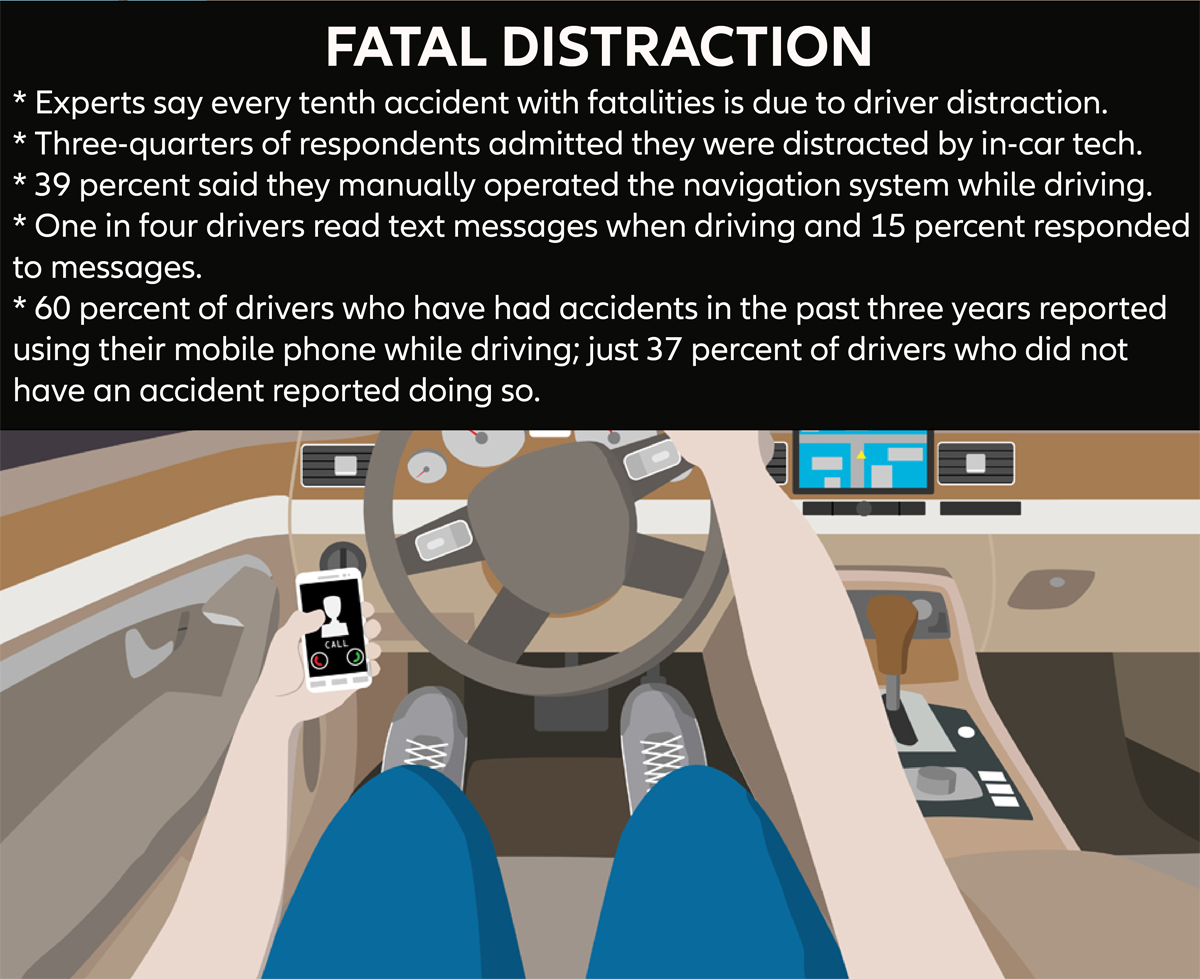Alcohol has long been considered one of the most dangerous causes of impairment to the fitness of drivers, but distractions by technology, including smartphones and satellite navigation systems, are now proving to be a greater risk. Some 74 percent of drivers admit to being distracted while driving.
A new study by the Allianz Center for Technology (AZT) shows that the risk of an accident drastically increases when drivers switch attention from road traffic to the technology within their reach. The study highlights a statistical correlation between higher accident rates and the use of information, communication and entertainment functions on offer within cars.
For example, 60 percent of drivers who have had accidents in the past three years report using their mobile phone while driving. Just 37 percent of drivers who did not have an accident reported doing so.
"This is not really a surprise," says Jochen Haug, Head of Claims at Allianz Germany. "The more diverse the technology and the more complex its operation, the more it will distract the driver from monitoring the traffic."

